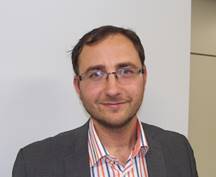Wednesday, 6 March 2019, 1730 – 1900
Humanities Lecture Theatre, Main Building, University of Glasgow
The Great Transformation or Going to Hell in a Handbasket?: Innovation and Intellectual Property in the 21st Century.
 Professor Peter Drahos, European University Institute
Professor Peter Drahos, European University Institute
For the third and final lecture in the Spring 2019 Public Lecture Series, CREATe welcomes Peter Drahos.
Abstract:
The economic transformations of the first half of the 21st century will have to be as great as anything experienced in the 20th century. International organizations such as the OECD and the International Energy Agency have repeatedly pointed out that states must transform their energy systems if they are to achieve their climate change goals. States are being advised that their economies must be circular, green, low carbon, sustainable and, above all, more innovative.
The globalization of intellectual property was one of the striking features of the last century and continues this century despite the backlash against neo-liberal prescriptions favouring capital mobility, deregulatory orders and open markets. States continue to behave as if they believe that more intellectual property equals more innovation. Is the intellectual property paradigm taking states closer to the kinds of rapid transformations that the evidence suggests are badly needed? Drawing on early theorists of innovation such Marx and Schumpeter, as well as contemporary theories of innovation, this talk considers some responses to this question.
Biography:
Peter Drahos is Professor of Law and Governance at the European University Institute in Florence. Until 2017, he was Professor in the RegNet School of Regulation and Global Governance at the Australian National University. He also holds a Chair in Intellectual Property at the Centre for Commercial Law Studies, Queen Mary University of London.
Previous Lectures in the Series:
Wednesday, 6 February 2019, 1730 – 1900
Humanities Lecture Theatre, Main Building, University of Glasgow
How Difficult Is It to Repeal New Intellectual Property Rights?
 Ass. Prof. Martin Husovec, Tilburg Institute for Law, Technology and Society (TILT), Tilburg University
Ass. Prof. Martin Husovec, Tilburg Institute for Law, Technology and Society (TILT), Tilburg University
For the first in the Spring 2019 Public Lecture Series, CREATe welcomes Martin Husovec to present ‘How Difficult Is It to Repeal New Intellectual Property Rights’.
Abstract:
In 2010s, we are witnessing a number of policy debates concerning proposals for new intellectual property rights. The high-profile examples include the publisher’s rights, data producer’s rights, and sports events organizer’s rights. The arguments behind these rights are purely utilitarian, unlike in case of some traditional intellectual property rights, such as author’s or inventor’s rights. These rights are clearly presented as tools of EU innovation policy incentivizing quality journalism, data creation, and trading, or investments in sports. However, how sticky are these tools? A lot of attention in the literature rightly focuses on the first-order issue of their social costs and benefits. Little attention is paid to the problem of (European) institutional inertia which keeps some of these solutions in the circulation despite their proven ineffectiveness. While economic progress is unthinkable without stable property rights, it is equally unthinkable without their never-ending adjustment and continuous reflection of their effects. In this talk, Dr Husovec will pose the following question: how difficult is to legislate away a new set of intellectual property rights once they are found to be incapable to deliver on their promises? He will explore it by looking at the legislative options in the European Union and the guarantees offered by Article 17 of the EU Charter. In addition, he will discuss how this regulatory autonomy of the EU relates to investment protection under international treaties and the principle of free movement of goods and services.
Biography:
Martin Husovec, Assistant Professor, Tilburg Law School, Tilburg Institute for Law, Technology and Society (TILT) & Tilburg Law and Economics Center (TILEC) & Affiliate Scholar at Stanford Law School’s Center for Internet & Society (CIS).
Wednesday, 20 February 2019, 1730 – 1900
Humanities Lecture Theatre, Main Building, University of Glasgow
Trade deals and disputes – copyright as a possible model?
 Professor Alison Firth, University of Surrey
Professor Alison Firth, University of Surrey
For the second lecture in the Spring 2019 Series CREATe welcomes Alison Firth to present ‘Trade deals and disputes – copyright as a possible model?’
Abstract:
With deconstruction of the UK’s EU membership having been under negotiation, and talk of possible trade deals with countries outside the EU, it is worth taking a look at two international agreements to which the UK is a party – the European Convention on Human Rights and the World Trade Organisation’s “TRIPs” agreement on trade related aspects of intellectual property rights [the subject of Antony Taubman’s 28 November CREATe lecture] – and how disputes under them are resolved. For copyright disputes, Prof. Laurence Helfer suggested some time ago that WTO dispute resolution panels follow the approach of the European Court of Human Rights in interpreting TRIPs. Is this feasible? Is it an approach that could be adopted for other treaties? How else might the interpretation and application of treaties be brought up to date? Alison Firth will explore these issues using copyright as an example.
Biography:
Alison Firth, is Professor emeritus in law, University of Surrey and Visiting professor, Queen Mary, University of London and at Newcastle Law School; She is also a visiting fellow, New College of the Humanities, London

